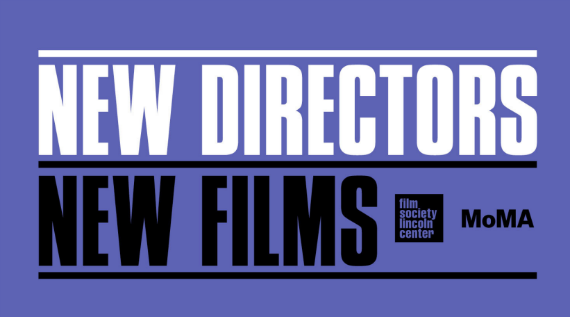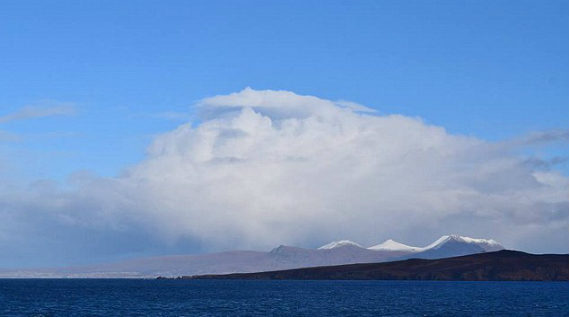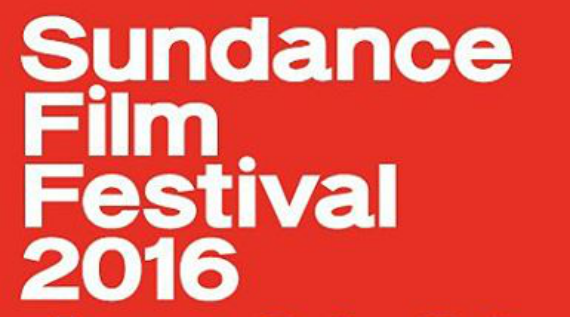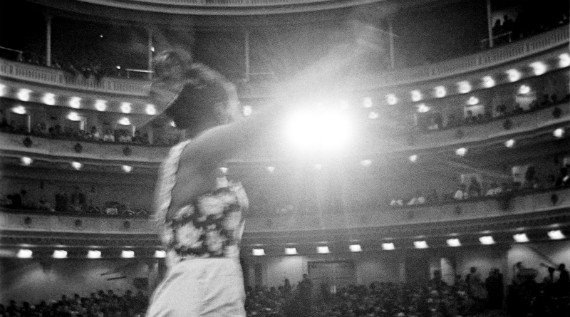Following the BAFTAs last week, where I AM NOT YOUR NEGRO took home the prize for Best Documentary, it seems the every growing sprawl of awards season is finally about to reach its climactic conclusion with the 90th annual Academy Awards ceremony at the Dolby Theatre in Hollywood. In The New York Times, Cara Buckley dished a wild yarn on how Russia has been leading a smear campaign against two doc Oscar nominees, noting LAST MEN IN ALEPPO as its major target, “In the Russian media, Mr. Fayyad has been accused of being a Western-funded propagandist whose film is a thinly disguised ‘Al-Qaeda promotional vehicle.’ And, in what might catch members of the academy’s documentary branch by surprise, the film’s Oscar nomination was, according to Russia Insider, clear evidence that ‘the Hollywood celebrity industry is now an integral part of the U.S. state’s propaganda machine.'” Not only is the film being smeared, but the US has officially rejected the visas of the film’s producer, Kareem Abeed, and one of its subjects, White Helmets co-founder Mahmoud Al-Hattar, making it impossible for them to attend the ceremony, reports Beatrice Verhoeven at The Wrap. Meanwhile, the International Documentary Association and the Academy itself have published statements in support of the team behind LAST MEN IN ALEPPO.
In the latest episode of a relatively new documentary podcast called The Fog of Truth, produced by Christopher Llewellyn Reed, Summre Garber and Bart Weiss, the trio discuss the Oscar nominees and a whole host of previous nominees. Other Oscar coverage came in the form of interviews by RogerEbert.com’s Matt Fagerholm with ABACUS: SMALL ENOUGH TO JAIL director Steve James and EDITH+EDDIE director Laura Checkoway, another interview with Checkoway by IDA’s Akiva Gottlieb, a profile on James in The Los Angeles Times by Lewis Beale, an interview with STRONG ISLAND director Yance Ford with Cara Buckley in The New York Times, and a feature in The Guardian by Charlie Phillips on the fact that the “most innovative factual films are often under 40 minutes long – and the best of this growing genre are easy to find online” – including EDITH+EDDIE.
Tomorrow, we here at Stranger Than Fiction have the rare opportunity to preview two episodes of FLINT TOWN on the big screen, followed by a conversation with the filmmakers (Zackary Canepari, Drea Cooper and Jessica Dimmock), a few days before the series launches on Netflix. Tickets for this special event are still available here.
Continue reading…
It’s been an incredibly difficult week to keep up with documentary news, as my normal means of news gathering have been swamped with story after story of Trump’s growing list of executive actions, and understandably so. It’s times like these that make us reconsider the importance of the arts and the industries that grease their wheels. I mean, why read about award shows and film festivals while journalists are being charged with felonies for covering the protests during the inauguration, Stephen Bannon has publicly stated that media should “keep its mouth shut” and the president himself has issued a an order on immigration that severely restricts immigration from seven Muslim countries and more? Because cinema, and more specifically, documentaries, epitomize the human condition, inspire empathy, and more often than not advocate for social change in times of political unrest – now more than ever.
In response to Trump’s immigration restrictions, Field of Vision currently has a callout for footage from inside airports pertaining to the Muslim Ban. Anyone with footage can reach out to contact@fieldofvision.org or share it anoymously in their secure drop. Reporting from Sundance, IndieWire’s Anthony Kaufman, Realscreen’s Valentina Valentini and Vulture’s Jada Yuan each parsed how the festival’s documentary selections worked in relief to the Trump administration thus far. Even this week’s episode of Pure Nonfiction, featuring Mohamed Nasheed, the former president of the Maldives, who was profiled in the 2011 documentary THE ISLAND PRESIDENT, deals directly with the political impact of documentary films and the current political climate we’ve found ourselves in.
Right here at home, we announced last Friday that Stranger Than Fiction will be returning to the IFC Center for our 2017 Winter Season, which begins Tuesday, February 7th with the NYC premiere of Andreas Dalsgaard and Obaidah Zytoon’s THE WAR SHOW, about “a Syrian radio DJ who documents the experiences of herself and her friends as their dreams of hope and liberation in the wake of the 2011 Arab Spring give way to the grim realities of repression, forced emigration and extremism.” Alaa Hassan, the film’s producer, will be on hand for a live post-screening Q&A. Tickets to our opening night event, as well as season passes, can be purchased here.
Continue reading…
The first full week of 2017 has already flashed before our eyes, but not a whole lot happened in terms of documentary news. Most excitingly, Sundance approaches and giddy critics are chomping at the bit to see what will be the most remarkable finds this year in Park City. While the festival’s Documentary Programming Associate Basil Tsiokos continues to roll out his previews of each film over at What (not) To Doc, while at Doc Soup, Tom Roston has composed a list of docs to watch out, not just at Sundance, but also Slamdance and in theaters later in the year. In other festival news, the Rotterdam International Film Festival revealed their lineup, which included the lengthily titled duo Rong Guang Rong’s CHILDREN ARE NOT AFRAID OF DEATH, CHILDREN ARE AFRAID OF GHOSTS and Jung Yoonsuk’s BAMSEOM PIRATES SEOUL INFERNO. Doc filmmakers should also take note that today is Hot Docs’ Late Deadline for submissions – you can do so here.
In a rare role reversal, our own Thom Powers was at the receiving end of questioning by Daniel Clarkson Fisher for Nonfics about “what he looks for, what trends he’s seeing, and how he continues to champion a greater appreciation for nonfiction cinema”. A highlight — “Fisher: The New York Times has used the phrase “kingmaker” to describe your place in the world of documentary — Powers: Mind you, this is the same newspaper that told you Iraq had weapons of mass destruction”.
Continue reading…
Barely a week into December and the holiday/award season goodies are already being handed out in mass! While both the Los Angeles Film Critics Association and the National Board of Review named AMY the best doc of the year, the New York Film Critics Circle begged to differ by giving the title to a film close to their hearts (and zip codes), IN JACKSON HEIGHTS. As reported by Andrew Pulver of The Guardian, Ross A. Lincoln of Deadline, and various Hollywood Reporter staffers, Joshua Oppenheimer’s heavily favored THE LOOK OF SILENCE took home the prize for best doc early in the week at this year’s Gotham Independent Film Awards. And to continue the diverging chorus of opinions, Judith Dawson and Louise Osmond’s crowd pleasing DARK HORSE was named best doc at this year’s British Independent Film Awards.
Amidst this hail of honors, the International Documentary Association Awards also celebrated their 31st edition, naming THE LOOK OF SILENCE as the best doc feature, alongside a lengthy list of deserving honorees. In the wake of the announcements, a flurry of discussion as taken place in pieces from Rebecca Keegan in The Los Angeles Times, Nigel M. Smith of The Guardian, Variety’s Kristopher Tapley, Scott Feinberg in The Hollywood Reporter and Realscreen’s Manori Ravindran. In tandem with the IDA Awards, IDA executive director Simon Kilmurry briefly appeared on KCRW to discuss the state of documentaries. Meanwhile, the Academy of Motion Picture Arts and Sciences released their 15 film Oscar shortlist for documentary feature, including most of the expected contenders, including 11 films previously programmed as part of DOC NYC’s Shortlist section. Stephanie Goodman singled out AMY and THE HUNTING GROUND as forerunners in her report of the announcement in The New York Times, while at the POV Blog, Tom Roston aptly commented on the inclusion of 3 1/2 MINUTES, 10 BULLETS and WE COME AS FRIENDS, and the blatant snubbing of MONTAGE OF HECK and THE WOLFPACK. At indieWIRE, Anne Thompson and Peter Knegt revealed their predictions for the final 2016 Oscar contenders.
With eight films on this year’s Oscar shortlist having had their world premieres at Sundance earlier this year, it’s no secret that Park City has become a major springboard for non-fiction fare. So, despite all the excitement about awards, it was the Sundance Film Festival‘s revealing of their 2016 competition titles that sparked the most interest this week from critics and doc lovers alike. In his piece in The New York Times on the annoucement, Brooks Barnes riffs on this idea, noting that “Sundance, coming up on its 32nd installment, has long served as a launching pad for documentaries. TWENTY FEET FROM STARDOM, which went on to win the 2014 documentary Oscar, was first seen in competition.” Sandy Cohen of The Washington Post and Realscreen’s Kevin Ritchie reflected on the festival’s lineup, while indieWIRE’s Eric Kohn and Kate Erbland listed “9 Hidden Gems from the 2016 Sundance Lineup,” singling out a pair of docs, including the anonymously directed HOLY HELL and Robert Greene’s KATE PLAYS CHRISTINE.
Continue reading…
Each year the Academy of Motion Pictures re-evaluate their rules for Oscar consideration and the like. Last Tuesday, it was announced that the Documentary Short Subject shortlist would be changing from a maximum of 8 films to 10, and the actual nominations would be set at a static 5 films, rather than fluctuating from 3 to 5 films each year. Anne Thompson reported on the list of Oscar rule changes for Indiewire, while Daniele Alcinii wrote about the news for Realscreen.
While major awards are always a fast track to cinematic cultural recognition, Anthony Kaufman pored over whether celebrity supporters actually have any impact on whether or not documentaries find a market or not for Indiewire. Unsurprisingly, filmmakers like Rachel Boynton who directed BIG MEN and had Brad Pitt as a supported found that “Basically, it makes people feel like your film will be taken seriously by the world when it’s finished. And that can be the difference between getting a ‘no’ and getting a ‘yes.'”
Contemplating film form rather than marketing, Ben Kenigsberg wrote a feature in The New York Times that sees filmmakers such as CARTEL LAND director Matthew Heineman and doc curators such as our own Thom Powers speaking on manipulative, often aesthetically based choices made when constructing non-fiction features. Joe Berlinger, of films like BROTHER’S KEEPER and PARADISE LOST, thinks there needs to be a balance of intimacy and aesthetics, stating, ““The more you treat your interview and your documentary situation like a film set, the less people are comfortable, and the less spontaneous action you can film.”
Continue reading…










